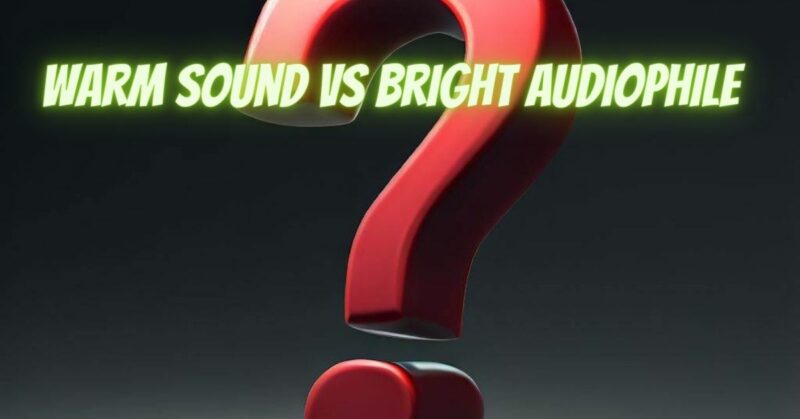The terms “warm” and “bright” are often used to describe the sound quality of audio equipment, such as speakers, headphones, and amplifiers. Warm sound is often associated with a rich, full sound with a lot of detail, while bright sound is often associated with a more analytical sound with more emphasis on the high frequencies.
When it comes to audiophiles, there is no one-size-fits-all answer to the question of whether warm or bright sound is better. The best type of sound for you will depend on your personal preferences and the type of music you listen to.
Warm Sound for Audiophiles
Warm sound can be beneficial for audiophiles in a few ways. First, it can help to create a more immersive listening experience by making the soundscape feel more realistic. Second, it can help to reveal more detail in the music, as warm sound can often be more forgiving of recording flaws. Third, it can help to reduce fatigue, as warm sound is often less fatiguing to listen to than bright sound.
However, warm sound can also have some drawbacks for audiophiles. First, it can make it difficult to hear high-pitched sounds, such as cymbals or vocals. Second, it can make the soundstage feel less open and spacious.
Bright Sound for Audiophiles
Bright sound can be beneficial for audiophiles in a few ways. First, it can help to make high-pitched sounds more audible, which can be helpful for classical music or other genres with a lot of high-frequency content. Second, it can help to make the soundstage feel more open and spacious. Third, it can help to reveal more detail in the music, as bright sound can often be more revealing of recording flaws.
However, bright sound can also have some drawbacks for audiophiles. First, it can be fatiguing to listen to for long periods of time. Second, it can make it difficult to hear important audio cues, such as vocals.
Ultimately, the best way to decide whether warm or bright sound is better for you is to experiment with different headphones and music and see which ones you prefer.
Here are some additional things to consider when choosing the right sound for audiophiles:
- The type of music you listen to. Some genres of music, such as classical music, require a wider soundstage and more detail than other genres, such as rock music.
- Your personal preferences. Some people prefer the warm sound of headphones, while others prefer the bright sound.
- The quality of the headphones. High-quality headphones will generally produce better sound quality than low-quality headphones.
- Your budget. Headphones can range in price from a few hundred dollars to several thousand dollars.


